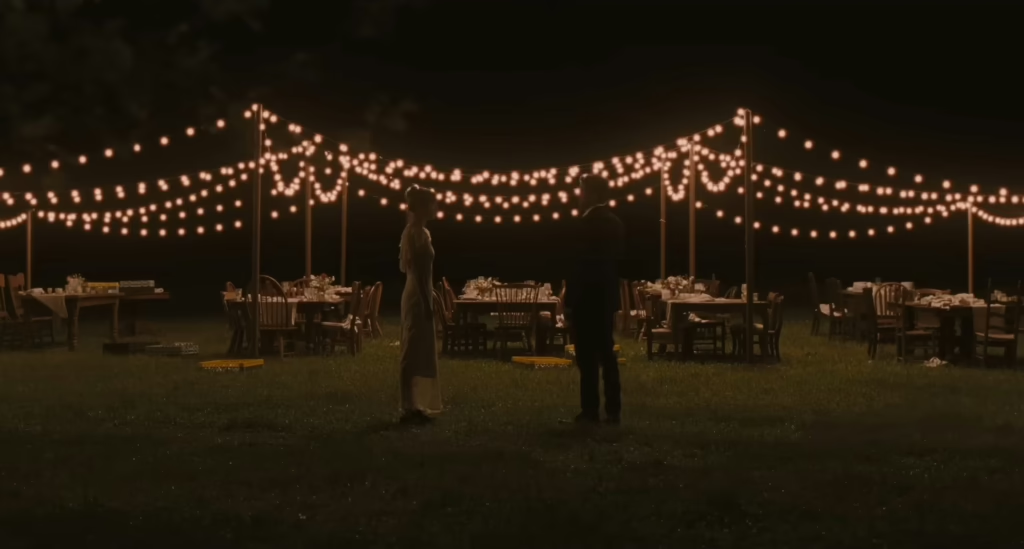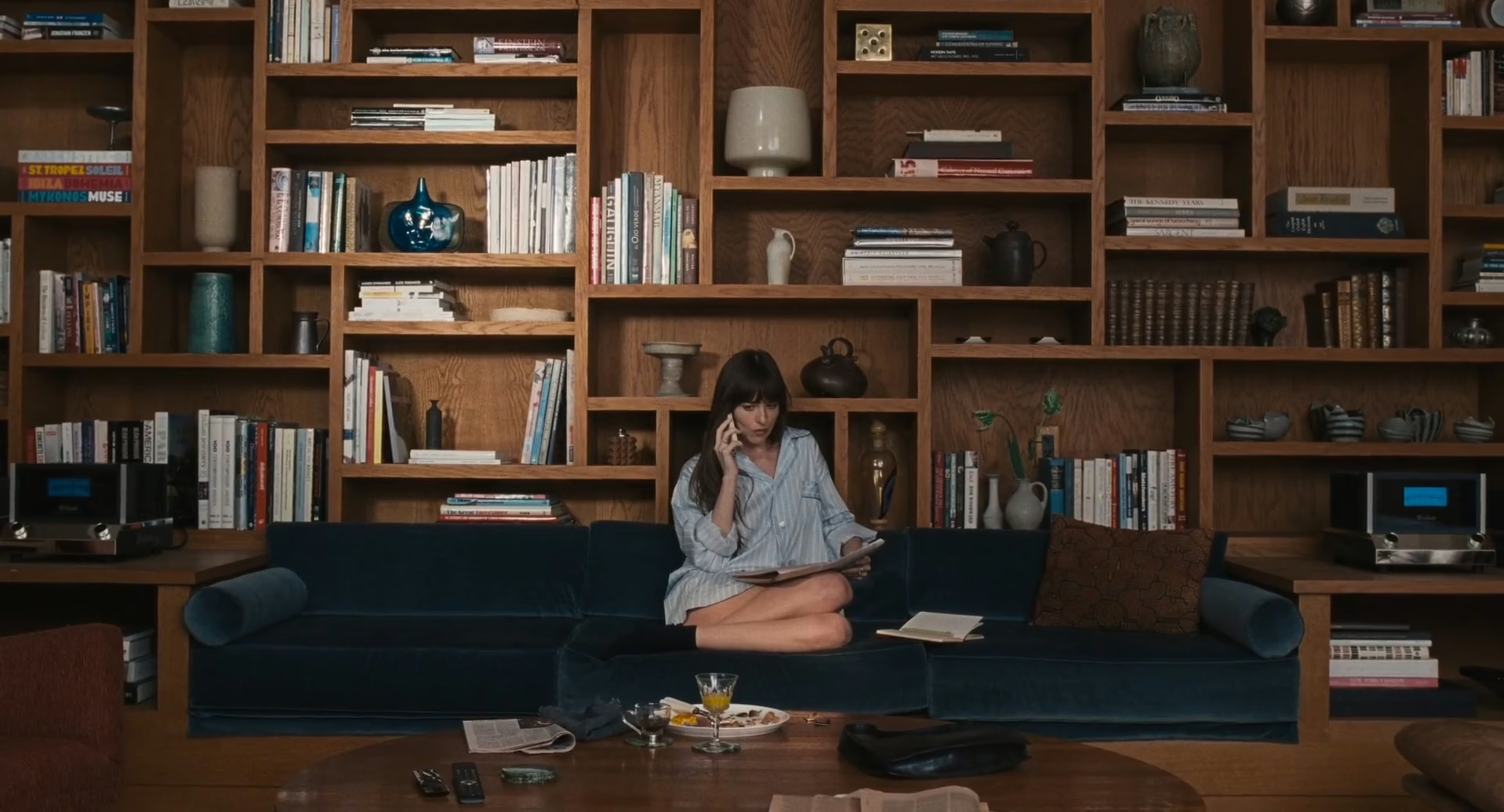Celine Song | 1hr 57min

The greatest success that a matchmaker at high-end dating agency Adore could possibly find is a client’s engagement, and in this field, Lucy stands without equal. Hers is a profession of checklists and empirical metrics, yet so too must she wield a sly charm to push relationships to the next level, even counselling hesitant brides with cold feet. “Marriage is a business deal,” she proclaims to Charlotte, who tearfully questions the foundation of her relationship with Peter on the morning of their wedding. Perhaps she is only making this commitment out of obligation, she wonders – or even worse, because it makes her sister jealous. As a true professional, Lucy barely flinches at the confession. This is only evidence that Peter makes her feel valuable, she slickly reasons, efficiently smoothing over Charlotte’s uncertainty with practiced ease.
The earlier stages of dating are no easier either, especially given the shallow standards of New York City’s social ecosystem. Middle-aged men seek out younger, more naïve partners, leaving spurned women to bitterly raise their expectations, and thus exacerbating a cycle that condemns the exceedingly average to lives of solitude. Their irrationality pays no heed to the logic which guides Lucy’s matchmaking, though at their core, neither instinct nor algorithm truly appreciate the unquantifiable heart of sincere connection. For all their cosmetic procedures and curated profiles, these commodities of the dating marketplace are still bound by a system that equates love with trade value, making it very difficult indeed to find a truly happy character in the polished world of Materialists.
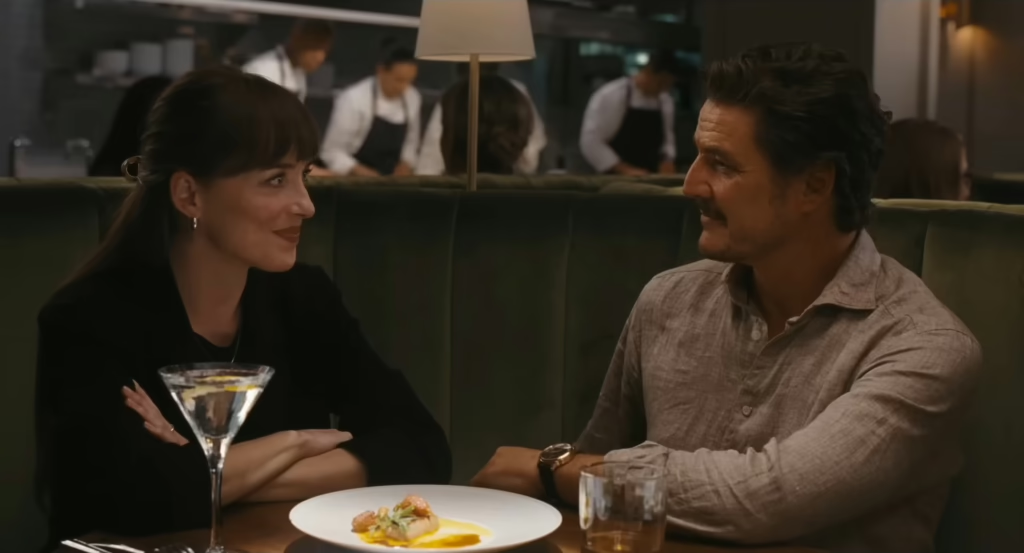
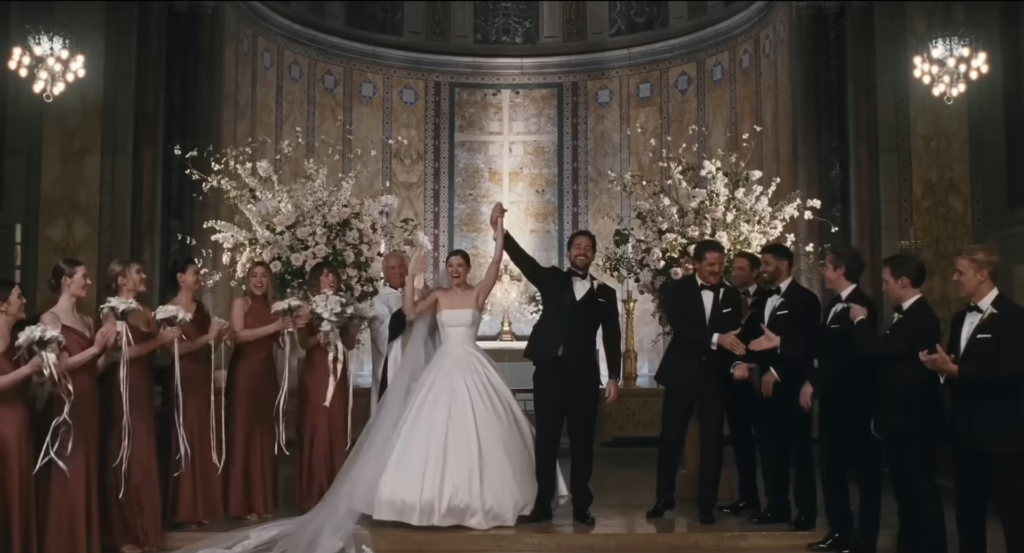
Celine Song’s follow up to Past Lives’ serene, star-crossed romance is similarly invested in the unwritten rules and contradictions of modern relationships, though the cynicism here casts a more biting, satirical edge over the melancholy of her debut film. This is not to say that Materialists lacks sweetness, as Song’s recurring motif of prehistoric lovers gently evokes the primal, organic connection that so many try to recapture, but the simple purity of their loving gestures feels increasingly out of reach in New York City. As it is, there are no flower ring proposals among these status-conscious individuals, earning superficial respect through artificial affection as they scale an arbitrary social ladder.
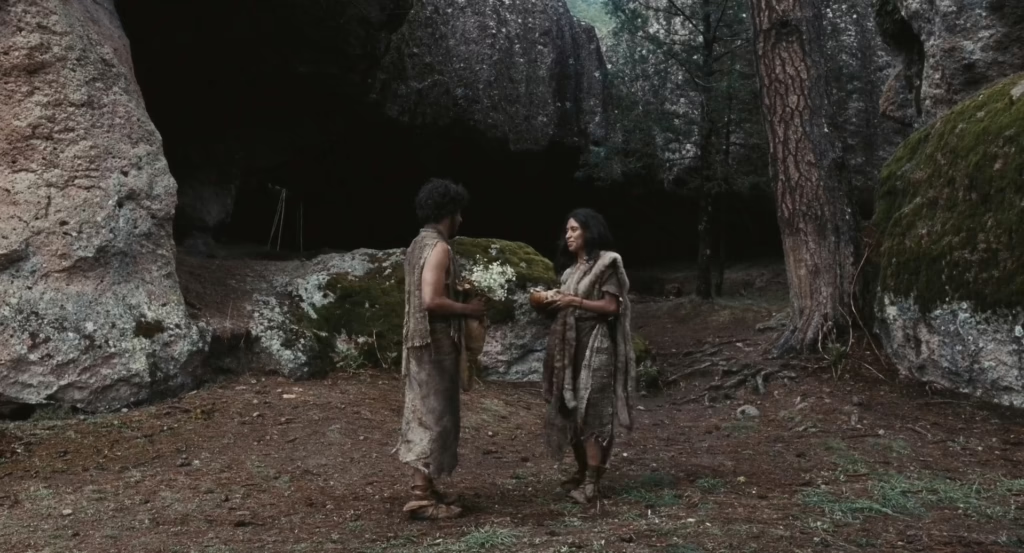

Song’s delicate construction of this performative high society warrants some praise here, framing Lucy’s intersecting professional and romantic lives within the sleek interiors of New York bars, hotels, and restaurants. Even in her own home, a vast bookshelf of tessellating rectangles cleanly visualises a world built on aesthetic structure and control, while elsewhere long takes maintain a similarly measured focus through tracking shots and slow zooms. When Lucy meets handsome millionaire Harry, Song seems to absorb her even deeper into this upper-class social sphere, though not without heavily contrasting its manicured sophistication against the chaos of her ex-boyfriend’s apartment.
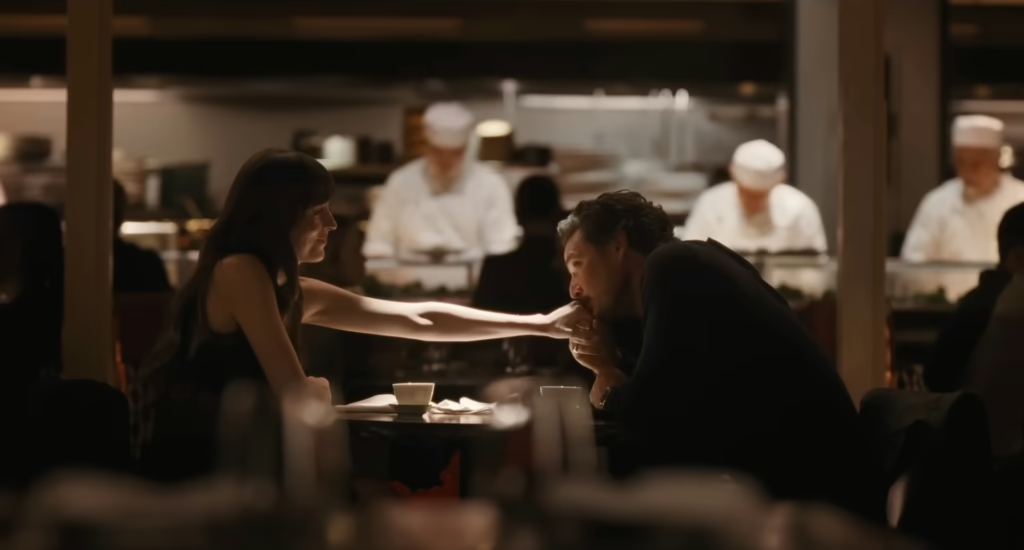
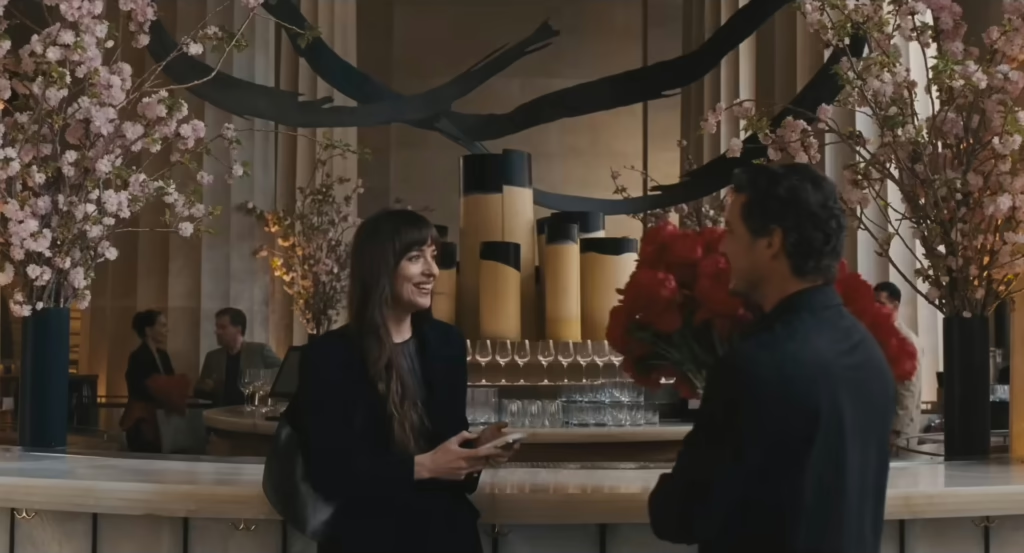
Unlike her, John never gave up his dreams of acting, and the consequences are evident in their class divide. While she chases professional success to afford a more comfortable life, he works a side job as a cater-waiter and lives in squalor, dealing with the boorish antics of his unhygienic flatmates. The shift in camerawork is felt here too, no longer gliding but rather staggering in jerky, handheld motions as he navigates cramped hallways and cluttered living spaces. It isn’t just a social dichotomy that Song draws in this contrast, but for Lucy, it is also a choice between romantic stability and sincere connection.
The emotional guard that Dakota Johnson often holds between herself and the audience works effectively in this role, lending Lucy an almost impenetrable exterior. As she finds herself progressively torn between Harry and John though, a critical self-awareness of her “judgemental, materialistic, and cold” manner also emerges, revealing a vulnerability that she struggles to reconcile with her pragmatic standards. Both Pedro Pascal and Chris Evans are effortlessly charming as her love interests, but it is clear where the chemistry lies, despite Harry embodying the statistically flawless “unicorn” who scores 10s in every category.

Lucy’s algorithmic method of predicting successful relationships is more than just disillusioning though. Ignoring the intangible qualities of trust and intuition also proves recklessly dangerous in Materialists, even if its resolution ties off these threads a touch too cleanly. This matchmaker is shaken to learn of a client’s assault during a date she arranged, forcing a dire reckoning with her personal accountability, and the ethical foundations of her entire profession. What does compatibility truly mean when reduced to data points, Song wonders, thoughtfully piercing the veil of pretension that serves nothing but status and ego. The systems we have built around love shape our desires and distort our expectations, yet as her clear-eyed romance lays bare, it is only inevitable that they should crumble under the primal, emotional insistence of human nature – and in their ruins, reveal the fresh beginnings of something imperfectly sincere.
Materialists is currently available to rent or buy on Apple TV and Amazon Video.
